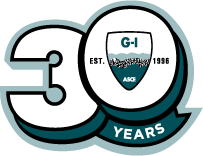Sunday, November 2
Full Day Courses | 8:00 a.m. – 5:00 p.m.
Seismic Site Response: Ergodic vs. Site-Specific Methods
Instructor: Jon Stewart
This short course will explain the differences between ergodic and site-specific (non-ergodic) seismic site response methods. Technical background will be provided, specific procedures described, and example applications shared. The course includes recently approved NEHRP Provisions changes that are expected to be incorporated into building codes, helping attendees prepare for upcoming standards in seismic hazard analysis.
Advances in Slope Stability Analysis and Shear Strength Applications
Instructors: Timothy D. Stark, Ph.D.; Jack Montgomery, Ph.D.; Jay McKelvey, Ph.D.
This course presents modern approaches to static and seismic slope stability analysis, shear strength selection, and stabilization techniques. Attendees will engage with software demonstrations, real-world case studies, and in-depth discussions on drained/undrained strength testing, debris flows, and slope failures. The course is ideal for geotechnical engineers, regulators, and construction professionals.
